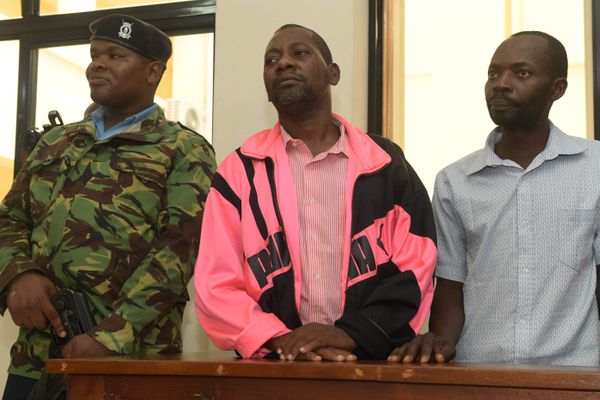
A Kenyan court has decided to extend the detention of a cult leader who is accused of inciting and potentially coercing over 400 of his followers to deprive themselves of food to the point of death.
Self-proclaimed pastor Paul Nthenge Mackenzie has remained in police custody since mid-April while authorities conduct a search for additional bodies in a forest located near the Indian Ocean coast.
During a court proceeding in the port city of Mombasa, Senior Principal Magistrate Yusuf Shikanda announced that Paul Nthenge Mackenzie and 29 co-accused individuals will remain in custody for an additional 47 days as investigations continue.
The application by the state for extension of custodial orders is allowed… for a further period not exceeding 47 days from 2/8/2023,” Shikanda said.
The ex-taxi driver and founder of the Good News International Church has not yet entered a plea.
So far, a total of 425 bodies have been unearthed in the Shakahola forest, a 325-hectare (800-acre) woodland located inland from the coastal town of Malindi along the Indian Ocean.
The fourth round of exhumations was halted on July 19 to enable the under-equipped morgue in Malindi to conduct autopsies on 87 bodies.
While starvation seems to be the primary cause of death, autopsies conducted by the government indicate that some of the victims, including children, were strangled, beaten, or suffocated.
Regulating Religion
Authorities have detained a total of 37 individuals in connection with what has been labeled the “Shakahola Forest Massacre,” police announced.
Approximately 95 individuals have been rescued from the forest, and police have gathered 464 DNA samples from families in search of their missing loved ones, as per police records.
Doubts have arisen regarding how Paul Nthenge Mackenzie, a father of seven, eluded law enforcement despite his history of extremism and past legal encounters.
In 2017, Mackenzie ran afoul of the law when he faced allegations of encouraging children to abstain from attending school, asserting that education was not acknowledged by the Bible.
In March, he was arrested once again following the deaths of two children due to starvation while under their parents’ care. However, he was later released on bail.
The disturbing series of events has prompted President William Ruto to address the delicate issue of Kenya’s indigenous religious movements. This includes the challenges of regulating dishonest churches and cults that have engaged in criminal activities.
According to official data, there are over 4,000 registered churches in the East African nation with a population of approximately 53 million.
In June, the government announced its plan to transform the expansive coastal forest into a national memorial site.
